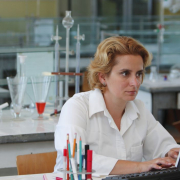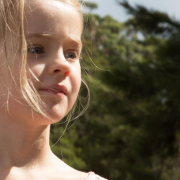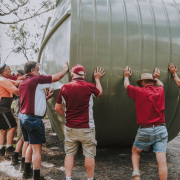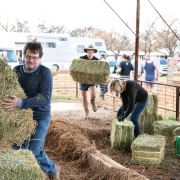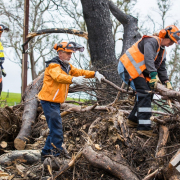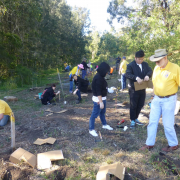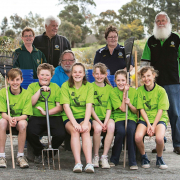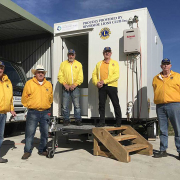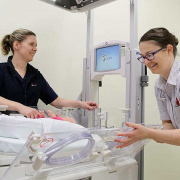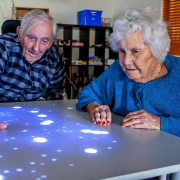Lions Spinal Cord Fellowship raising funds for Step Ahead Australia
Spinal cord injury affects millions of people around the world and around 20,000 Australians are currently living with a spinal cord injury. The cost to patients and their families is significant. In Australia it is estimated to be $2 billion annually.
Despite the costs and impact of spinal cord injury, funding to find a cure for chronic spinal cord injury is limited.
The Lions Australia Spinal Cord Fellowship is committed to raising awareness and funds to support more research. 100% of funds raised by the Fellowship are provided to Step Ahead Australia, a leading Australian organization on a mission to improve the quality of life for patients and find a cure for spinal cord injury.
Traumatic spinal cord injury results in the loss of neurons, support cells and the failure of severe nerve fibres to regenerate across sites of injury and re- establish neural circuits.
Quadriplegia or Tetraplegia is the partial or complete paralysis of the upper and lower portion of the body, including legs, trunk arms and hands. Quadriplegia is a neck injury. Paraplegia is the partial or complete paralysis of the lower portion of the body, including the legs and, in many cases, some or all the trunk. Paraplegia is a back injury.
By supporting the most innovative scientists and clinicians in Australia and throughout the world, StepAhead Australia is focused on the development of breakthrough nervous system repair technologies that can have a major impact on the quality of life for people suffering with these chronic disorders.
To date the Lions Spinal Cord Fellowship has raised in excess of $2.3 million for StepAhead Australia.
For more information on The Lions Spinal Cord Fellowship visit https://lascf.org.au
For more information on StepAhead Australia visit http://www.stepahead.org.au

